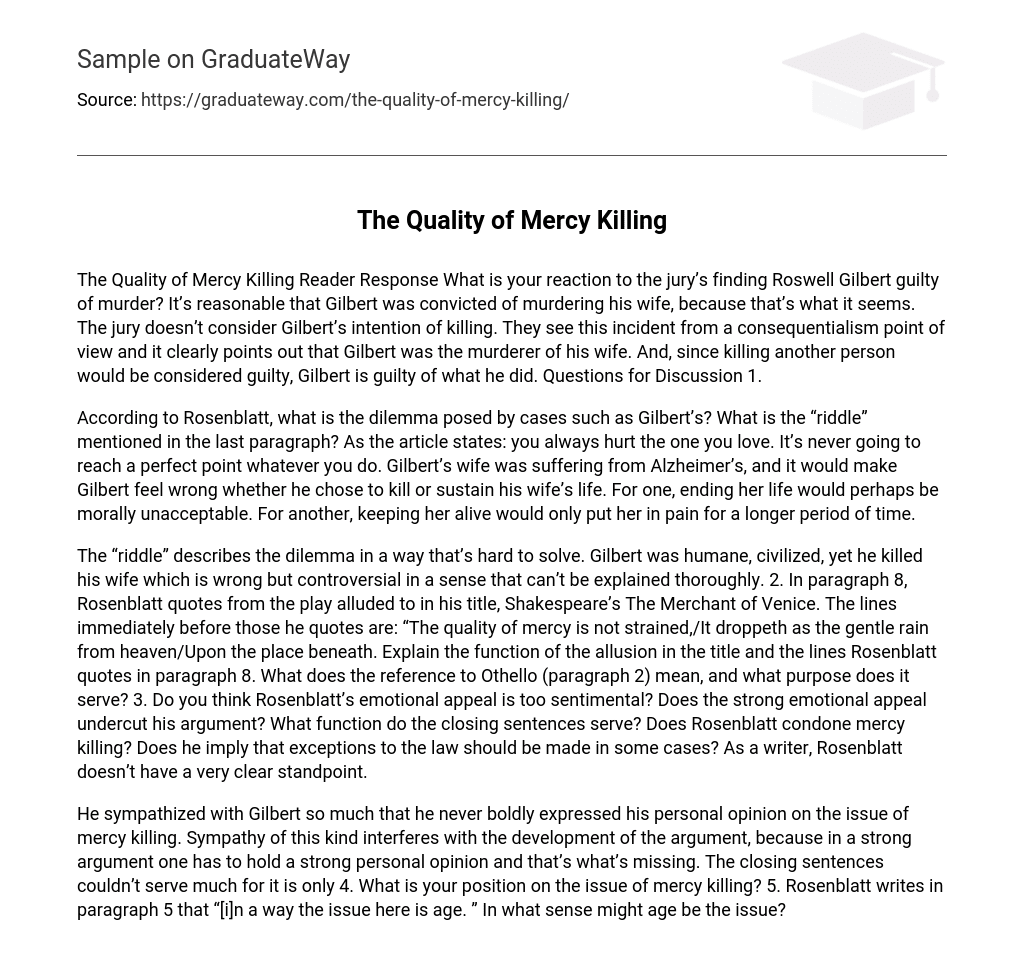The Quality of Mercy Killing Reader Response What is your reaction to the jury’s finding Roswell Gilbert guilty of murder? It’s reasonable that Gilbert was convicted of murdering his wife, because that’s what it seems. The jury doesn’t consider Gilbert’s intention of killing. They see this incident from a consequentialism point of view and it clearly points out that Gilbert was the murderer of his wife. And, since killing another person would be considered guilty, Gilbert is guilty of what he did. Questions for Discussion 1.
According to Rosenblatt, what is the dilemma posed by cases such as Gilbert’s? What is the “riddle” mentioned in the last paragraph? As the article states: you always hurt the one you love. It’s never going to reach a perfect point whatever you do. Gilbert’s wife was suffering from Alzheimer’s, and it would make Gilbert feel wrong whether he chose to kill or sustain his wife’s life. For one, ending her life would perhaps be morally unacceptable. For another, keeping her alive would only put her in pain for a longer period of time.
The “riddle” describes the dilemma in a way that’s hard to solve. Gilbert was humane, civilized, yet he killed his wife which is wrong but controversial in a sense that can’t be explained thoroughly. 2. In paragraph 8, Rosenblatt quotes from the play alluded to in his title, Shakespeare’s The Merchant of Venice. The lines immediately before those he quotes are: “The quality of mercy is not strained,/It droppeth as the gentle rain from heaven/Upon the place beneath. Explain the function of the allusion in the title and the lines Rosenblatt quotes in paragraph 8. What does the reference to Othello (paragraph 2) mean, and what purpose does it serve? 3. Do you think Rosenblatt’s emotional appeal is too sentimental? Does the strong emotional appeal undercut his argument? What function do the closing sentences serve? Does Rosenblatt condone mercy killing? Does he imply that exceptions to the law should be made in some cases? As a writer, Rosenblatt doesn’t have a very clear standpoint.
He sympathized with Gilbert so much that he never boldly expressed his personal opinion on the issue of mercy killing. Sympathy of this kind interferes with the development of the argument, because in a strong argument one has to hold a strong personal opinion and that’s what’s missing. The closing sentences couldn’t serve much for it is only 4. What is your position on the issue of mercy killing? 5. Rosenblatt writes in paragraph 5 that “[i]n a way the issue here is age. ” In what sense might age be the issue?





